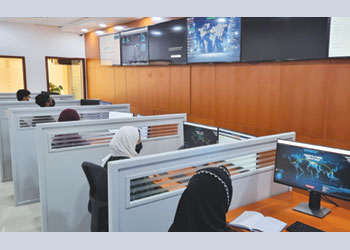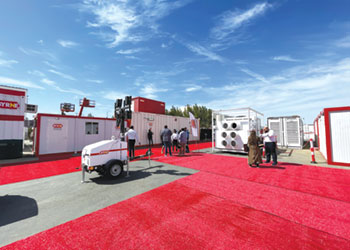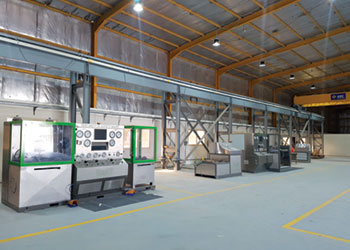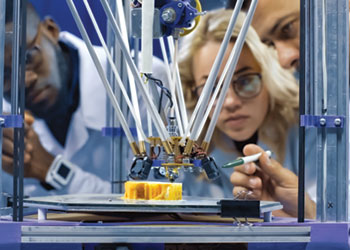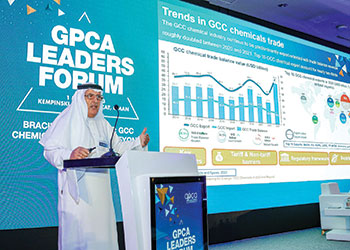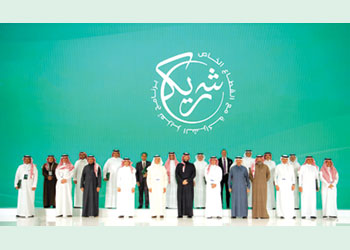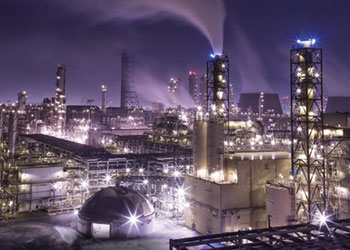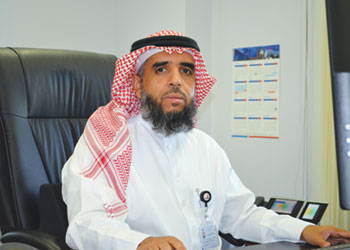
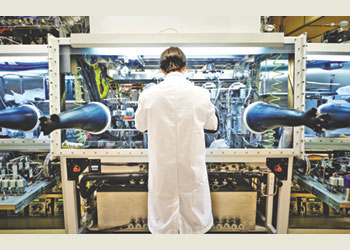 Specialties business value is derived from technology and intellectual property
Specialties business value is derived from technology and intellectual property
SABIC, through its global R&D footprint and product and applications testing to pilot scaling, continues to create value by pushing the boundaries of materials’ physical properties to address customers’ challenges.
In this regard, its Specialties business is home to high-performance specialty products.
An advantage this business offers is that it’s a non-cyclical technology business and independent of advantaged feedstock. Business value is derived from technology and intellectual property, together with customer relationships and strong relationships with original equipment manufacturers (OEMs).
In 2022, SABIC’s Specialties business supported efforts towards carbon neutrality and the circular economy through leveraging bio-renewable as well as chemical upcycling technologies to deliver high-performance materials with lower carbon footprints; striving to decrease the carbon footprint of its assets by increasing energy/resource efficiency and building meaningful collaborations with partners in relevant value chains.
SABIC has achieved important milestones in its journey to becoming the national champion for specialties in KSA while aligning with the National Industrialisation Strategy (NIS) and Vision 2030.
Last year, SABIC bought Clariant's 50 per cent stake in specialties company Scientific Design in 2022.
Scientific Design is a recognised leader in catalysis and this acquisition will strengthen SABIC’s non-cyclical technology-oriented business, moving it closer to its long-term goal of becoming a global specialties leader.
SABIC has laid out plans to meet a growing demand for high-heat polymers. In 2019, it made a significant investment in a production plant in Singapore to expand the capacity of its ULTEM high heat resin. Meanwhile, it will also restart NORYL resin plant in the Netherlands this year. The demand for such resins is driven by stringent requirements in applications that are exposed to challenging or tough environments.
SABIC’s further breakthrough includes NORYL NHP8000VT3 resin, which it introduced to help meet the stringent demands of EV manufacturers for higher voltage batteries.
Separately, SABIC introduced LNP ELCRIN EXL7414B copolymer, an ISCC+ certified 50 per cent bio-based content polycarbonate copolymer, to advance net-zero carbon goals for the consumer electronics (CE) industry.
Furthermore, SABIC’s manufactures the LNP ELCRIN WF0061BiQ resin, a novel material that uses ocean-bound polyethylene terephthalate (PET) bottles as a feed stream for chemical upcycling into polybutylene terephthalate (PBT) resin.
This grade adds to SABIC’s goal of circularity while serving as potential drop-in replacements for virgin PBT resins.
And for optimising performance of optical components, SABIC offers the EXTEM RH1016UCL resin, a new ultra-high heat near-infrared (IR)-transparent grade.
Together with optical design freedom and breakthrough high-temperature performance, this resin can help customers transition from pluggable optics to co-packaged optics that support increased data speed, scale and energy efficiency.
As specialties grows, SABIC will strive to continually provide stable value creation with products downstream from oil production. The company has thus far made far-reaching achievements.







































































